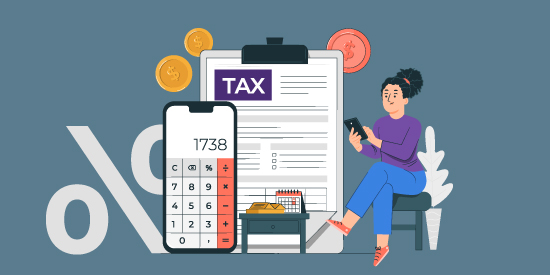Buying Property in UK for Foreigners- Guide for 2024

Foreign investors have long looked to the UK as a solid destination to invest in property. So in this article, you’ll find out all the ins and outs of buying a property in the UK for foreigners.
Despite the challenges posed by COVID-19, Brexit, and the ongoing economic crisis, foreign investors from all over the world remain positive and continue to express interest in the UK market. Various regions in the country offer promising potential for both capital appreciation and rental income, with high demand, limited supply, strong yields, and attractive prices keeping the UK on the international investment map.
Although the conclusion of the stamp duty holiday in 2021 (which also impacted overseas investors) may deter some, alongside the new Stamp Duty changes, the robust market performance, future growth prospects, and historically low pound value mean that investing in UK property still holds numerous advantages.
In this article, we will provide answers to some of the key questions that foreign investors may have before purchasing an investment property anywhere in the UK. Our aim is to offer professional insights and guidance to ensure that investors make informed decisions and achieve their investment goals.
Is Buying Property in the UK a Good Investment?
In the recent past, The UK experienced a drop in the real estate market and many areas are presenting lower-than-usual property prices where savvy investors can make substantial gains.
At the same time, the housing market forecast looks good, regardless of current market turmoils. In 2021, Savilles announced: “With house price growth at 10.4%, 2021 was the strongest calendar year for price growth since before the Global Financial Crisis (GFC) in 2008.”.
Looking ahead, experts predict a 4% market growth, indicating a promising trajectory for the housing market. By 2025, it is projected that property prices will rise by 21.1%, with certain regions experiencing even higher increases. However, it is worth noting that while UK property prices are generally considered affordable, certain locations command higher rates. Foreign investors should be cautious and mindful of this aspect.
If you want to know what 2023 has in store for the UK property market, check out our Housing Market Predictions for 2023.
Although some locations may have higher initial investment costs, they often present the advantage of generating higher rental revenues. Moreover, these areas have the potential for significant appreciation in property prices over time. Therefore, while the initial price may be steep, the overall return on investment can be substantial.
In light of these dynamics, it is crucial for investors, particularly foreign investors, to gain a comprehensive understanding of the UK property market before making any investment decisions. This includes studying market trends, analyzing regional variations, considering long-term growth potential, and consulting with industry experts. Armed with the right knowledge, investors can navigate the market effectively and make informed choices that align with their investment goals and risk appetite.
Here you’ll find more practical tips for UK property Investment.

Buying a Buy-to-let Property in the UK as a Foreigner
Investing in a buy-to-let property can be a smart decision for foreign investors seeking to diversify their investment portfolios and generate passive income. When evaluating potential buy-to-let properties, one of the key factors to consider is rental yield.
Fortunately, many cities across the UK offer attractive buy-to-let options, presenting investors with opportunities to earn high returns. For example, according to recent data, 25 postcodes across the UK have rental yields of over 6%. These postcodes include locations in cities such as Liverpool, Manchester, and Newcastle.
Liverpool is one of the cities in England that has the highest number of buy-to-let postcodes with rental yields of over 6%. In fact, according to recent research, Liverpool is the city with the highest rental yields in the UK, with an average rental yield of 6.3%. This is due to a combination of factors such as relatively affordable property prices, high rental demand, and a growing student population.
In Liverpool, there are several areas that are particularly attractive for buy-to-let investors. For instance, areas such as L7, L6, and L1 have rental yields of over 7%. Additionally, the city’s overall property market is buoyant, with experts predicting further growth and appreciation in property values.
If Liverpool simply doesn’t tickle your fancy, we’ve got you covered with our article on Best Buy-to-Let Areas in the UK, such as:
- Manchester
- Nottingham
- Leeds
- Bradford
Can a non-UK citizen buy property in the UK?
One of the advantages of investing in the UK property market is that there are no restrictions on non-British citizens purchasing property. This means that individuals from around the world can freely buy houses and other residential properties in the UK without needing to be British citizens or meet any specific residency requirements.
However, it is important to clarify that buying a property in the UK does not automatically grant residency or citizenship to the purchaser. Unlike some other countries that offer residency or citizenship programs through property investment, the act of buying a residential property in the UK does not provide any direct pathway to obtaining residency or citizenship.
Obtaining residency or citizenship in the UK involves a separate process governed by immigration laws and regulations.
Nevertheless, there are some notable considerations to keep in mind:
- Getting a mortgage is not as easy
- You might have to put down a hefty deposit
- It would be more hassle-free if you’re a cash buyer
- More stringent documentation will probably apply to you
Keep on reading to get more in-depth info on the possible hurdles and setbacks of buying property in the UK as a foreigner.

Can Foreigners Buy Property in the UK and Get a Mortgage?
While the UK property market welcomes foreign investors, non-residents may encounter challenges when it comes to qualifying for a mortgage or obtaining a large loan. Most mortgage lenders in the UK have restrictions and are hesitant to lend to non-UK residents, making it difficult to secure financing. Consequently, foreign investors who have the means to make a cash purchase may find the property acquisition process more straightforward.
For those foreign investors who are able to obtain a UK mortgage, it is important to note that a deposit ranging from 5% to 40% of the property’s cost is typically required. The exact deposit amount will depend on factors such as the lender’s policies, the borrower’s financial profile, and the specific terms of the mortgage agreement. It’s essential to be prepared to provide a substantial deposit to secure a mortgage in the UK.
While the mortgage lender will conduct an evaluation survey on the property, it is advisable for foreign investors to commission their own independent survey. This additional survey will provide a comprehensive assessment of the property’s condition and can help identify any potential repair or maintenance costs that may arise in the future.
It is important for foreign investors to seek professional advice from mortgage brokers, financial advisors, and surveyors who specialize in the UK property market. These experts can provide guidance on financing options, help navigate the mortgage application process, and ensure that investors have a clear understanding of the associated costs and potential future obligations.
Should Foreign Investors Consider a Leasehold or Freehold Property?
When considering investment opportunities in the UK housing market, it is crucial for foreign investors to understand the distinction between leasehold and freehold properties.
Leasehold refers to a property ownership arrangement where the investor does not own the building or the land on which it stands. This type of ownership is typically associated with flats or apartments, where multiple units are housed within a larger building. In a leasehold arrangement, the investor holds a lease from the freeholder, granting them the right to occupy the property for a specific period, usually long-term, as stipulated in the lease agreement.
For foreign investors, leasehold properties can be an appealing option in the UK housing market. One advantage of leasehold ownership is that it comes with fewer responsibilities and potential costs for repairs or maintenance. Typically, the freeholder or the property management company is responsible for the upkeep and maintenance of the building and any communal areas. This means that in the event of damage or issues with the property, the responsibility for repairs and associated costs often falls on the freeholder rather than the leaseholder.
On the other hand, freehold ownership grants the investor complete ownership of both the building and the land it sits on. This type of ownership is more commonly associated with houses or other standalone properties. As a freeholder, any damage or maintenance requirements for the property become the investor’s responsibility. While this provides greater control over the property, it also entails bearing the financial burden of repairs or renovations.

Can Foreigners Buy Student Rental Properties in the UK?
Foreigners looking to invest in a buy-to-let property should be aware of the two main types of properties that in the UK:
- student properties
- residential properties.
On the whole, student properties tend to be cheaper to purchase than residential properties, but this will depend on the area. To help you find the right area, we’ve prepared this article –Best Areas for Student Accommodation Investment
As a foreign investor in the UK property market, the type of buy-to-let property you focus on will depend on the tenant market you wish to access. The UK has a thriving student market, particularly in cities and university towns, and students often pay higher rent than residential tenants.
However, there tend to be more upfront costs such as wear and tear and renovation costs to make sure the property meets legal requirements. If you’re wondering whether student property is a good investment, read our guide to investing in student property in the UK.
Does the UK Stamp Duty Apply to Foreign Investors?
When investing in a UK property, foreign investors should bear in mind that upfront costs, taxes and fees will apply in addition to the property price. As of 1 April 2021, a new stamp duty charge for non-UK residents applies. With the aim to bring down property prices, this 2% stamp duty charge is on top of the existing rate of tax and calculated on the value of the property.
However, if the overseas investor is a first-time buyer in the UK, they can qualify for a first-time buyer tax rate – if the property value is less than £300,000, the buyer will just have to pay the 2% surcharge.

Do Foreign Investors Need to Pay Capital Gains Tax on a UK Property?
Foreign investors looking to invest in the UK housing market should be aware of the capital gains tax implications associated with buying and selling a property. Capital gains tax is a tax on the profit made from selling or disposing of an asset, including property.
As of April 6th 2020, you need to report, pay and submit a non-resident CGT (Capital Gains Tax) return on:
- Residential UK property or land
- Non-residential Uk property or land
- Mixed-use property or land
- Rights to assets that have at least 75% of their value from UK land
While foreign investors may not be immediately liable for capital gains tax upon purchasing a property, they will be subject to the tax upon the sale of the asset. Capital gains tax is calculated based on the difference between the purchase price of the property and the sale price, taking into account any costs associated with the sale. The tax is calculated at a rate of 28% for individuals and 20% for corporations.
However, it is worth noting that foreign investors may be entitled to a capital gains tax exemption or reduction under certain circumstances. For example, non-residents who sell UK residential property may be eligible for a tax exemption if they are a resident of a country with which the UK has a double taxation agreement.
It is important for foreign investors to seek professional advice from a tax specialist to understand their specific tax obligations and entitlements when investing in UK property. This will help investors to make informed decisions and avoid any potential tax liabilities or penalties. It is also crucial for investors to keep detailed records of all costs associated with the purchase and sale of the property to accurately calculate their capital gains tax liability.
Does Rental Income Tax Apply to Overseas Investors in UK Property?
Foreign investors who purchase a buy-to-let property in the UK will be subject to UK income tax on any rental income generated from the property. The tax rate for rental income varies depending on the investor’s total income and whether they are a UK resident or non-resident.
Foreign investors will need to register for self-assessment with the UK tax authority, HM Revenue and Customs (HMRC), to report their rental income and pay the relevant tax due. They may also be required to pay additional taxes such as council tax and property tax.
It is essential for foreign investors to seek professional tax advice to ensure that they comply with UK tax laws and regulations. Investors must keep accurate records of their rental income and expenses, including mortgage interest payments, property maintenance costs, and other related expenses, to claim the appropriate deductions and reduce their tax liability.
If you’d like more professional guidance on landlord tax in the UK, you might find this article useful.
Other Considerations and Costs for Overseas Buyers Investing in the UK Market
Conduct Proper Due Diligence
For overseas property investors that may not be living in the UK, it’s important to undertake proper due diligence before making any property investment. Foreign inventors should fully research the property market – which has regional variations – the company and developer behind the property or project and obtain a survey on the property if applicable.
Investors who are unable or unprepared to travel to view investment properties in person can purchase their buy-to-let property virtually. As a result of the COVID-19 pandemic and national lockdowns across the UK, more property investment companies have such processes in place, giving foreign investors the opportunity to make virtual tours and undertake the purchase of a property remotely.
Hire a Solicitor
When purchasing any property, it is usual to employ a solicitor who will provide assistance with the legal elements of the investment, including due diligence, researching any legal issues concerning the property, ordering a survey to ensure there are no structural issues with the property and generally ensuring the investment process runs smoothly.
In addition, a solicitor will require the relevant proof of identity documents in order to comply with money laundering regulations before supplying a foreign investor with a purchase contract, leasehold agreement and completion statement, which details the amount of money required to complete the property purchase.
Work with a Property Management Company
If investing in a buy-to-let property, property management companies can assist with the day-to-day duties involved with owning a rental property such as finding tenants, responding to tenant problems and queries and ensuring the property creates consistent rental income. Property management companies usually charge a percentage of the rental income as their fee.
Conclusion
If you’re a foreigner wondering whether you can buy a property in the UK, it’s certainly possible and with relatively low prices, future growth prospects and potential for strong rental yields and capital gains, investing in the UK housing market presents many advantages. To find out more about purchasing a property in the UK as an overseas buyer, get in touch today.

